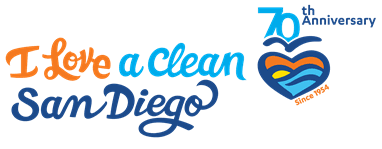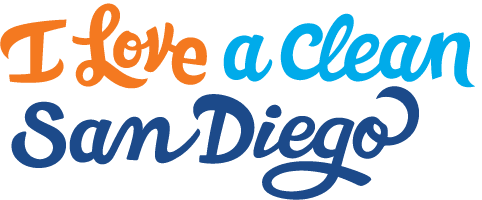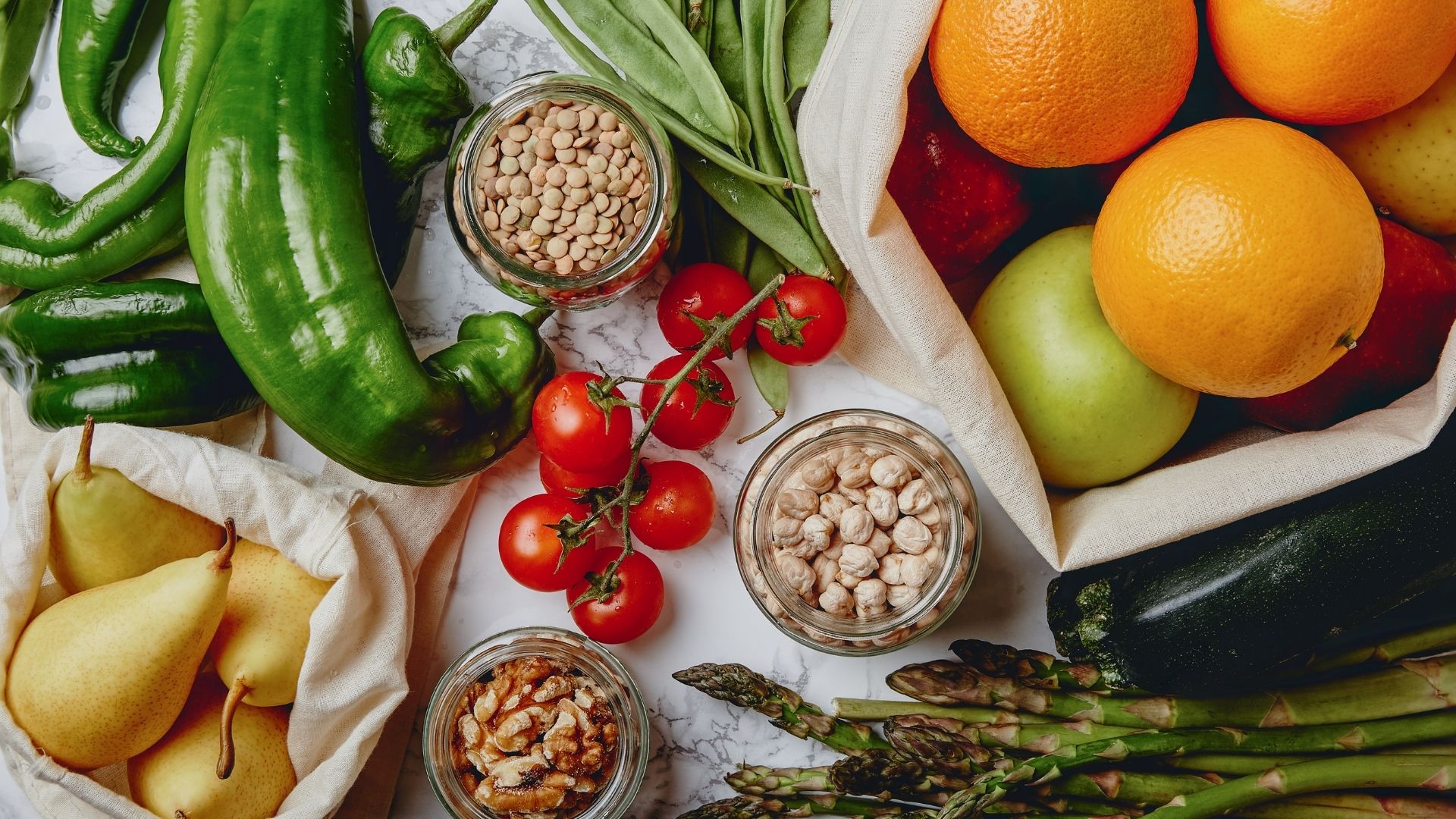Zero Waste Pets
Working on being sustainable with a furry friend at home? Maintaining a low waste lifestyle with a pet can be a challenge, but I Love A Clean San Diego has some tips, tricks, and resources for you! It’s fun to spoil our pets when we can, but a zero waste mindset allows us to think about what our pets truly need. There are ways to reduce, reuse, and recycle, even when taking care of a dog, cat, or other pet at home.
Pet Food
A great area to work on reducing waste is your pet’s food. There are so many options to cutting down on packaging. Try your best to buy in bulk. Most pet stores have a treat bar, so bring your own reusable bags and fill them up with treats for your pet! If you have a reptile, bring your own container next time you pick up crickets or other insects. You can also buy food in large quantities, especially if your pet requires something specific in their diet. This way, you are only tossing one piece of trash when you finish the container, rather than multiple small bags.
There are many resources online for making your own pet food! You can find recipes that do not need many ingredients, or that require ingredients you can pick up in minimal packaging.
You can also always look for pet food that comes in recyclable packaging. Remember, metal, paper and cardboard, glass, and plastic containers can all be recycled. Keep an eye out for food in stainless steel cans, or treats in hard plastic containers! This packaging can go into the recycling bin once you’re finished with it.
There are many pet supply brands out there with sustainability efforts. Check out the Pet Sustainability Coalition for more information!
Pet Toys
We all know that our pets can go through their favorite toys rather quickly. Do your best to choose good quality toys with minimal packaging to avoid purchasing more toys and sending cheap material from broken toys to landfill. If you know your pet will destroy any stuffed animal, choose those made of sustainable products or compostable fabric, like hemp.
Many of our household materials can be repurposed into DIY toys for pets as well.
- Braid strips of old fabric from t-shirts or blankets to make a pull toy or a feather toy
- Stuff socks with catnip for your cat to play with
- Use scrap wood and carpet to create a scratching post
- Wrap a water bottle in a t-shirt for a fun crinkle toy
Check out this resource for even more DIY ideas!
Donating Used Pet Supplies
Once we’ve cut down on how much waste we’re bringing home, we can think about how to properly dispose of the things that our pets don’t use anymore, or what can be donated. There are a lot of great local animal organizations that accept in-kind donations, or have wish lists of items they need. Check their websites – many of these facilities also accept items that we wouldn’t normally associate strictly with animals, like towels and sheets! If you’re cleaning out your linen closet and wondering what to do with those textiles, these can be great places to donate gently used items
Use WasteFreeSD to find more near you!
Pet Waste
Pet waste itself is somewhat challenging to dispose of in an eco-friendly way. It is crucial that we pick up after our pets because of bacteria that exists in their waste. We don’t want that washing into our storm drains and out to our waterways. What works for some in terms of picking up after their pet may not work for others. Try using a reusable scoop, scrap paper, grocery bags, or pick up after your pet using eco-friendly bags. Bags made from cornstarch claim to biodegrade – there are many brands out there, but you can read reviews to compare on things like price and effectiveness.
If you are interested in composting your pet waste, it needs to be completely separate from your food composting system. You should not use pet waste compost on anything you are growing to eat. You should not compost pet waste from animals that are sick or taking medication. For dog waste, you can develop a system that involves burying your composting bin or can in the ground, and layering waste and sawdust. Cat litter is a little more challenging. You will need to find a litter that is compostable, made from pine or paper. Remember, cat litter should not be flushed down the toilet, even if the brand says it can be flushed. Cat waste can contain a parasite called toxoplasma gondii, and many treatment plants are not designed to remove this from wastewater.
Water from a fish tank can often be used on your plants. Aquarium water contains potassium, nitrogen, and other nutrients that are in many chemical fertilizers, so it’s okay to use on house plants. If you use other chemicals in your tanks to treat algae or pH, or if you have a saltwater tank, we don’t recommend using this on plants.
As always, do your research! Make sure it’s safe to compost with your pet’s current diet. Always investigate what kind of plants it’s safe to use that compost on.
Small Changes Make a Big Difference
We know it can be challenging to reduce waste with a pet. Take it one step at a time! Start small and see how it goes – the best part is you might inspire friends and family to think differently about their waste habits as well! Let us know how you take care of your pet in a low waste way by tagging us on Facebook, Instagram or Twitter @ILoveACleanSD!
Pick up more zero waste tips and knowledge by attending our Celebrate Sustainably: Summer Fun webinar on July 28th! Register here. For more information on how to adopt a waste-free lifestyle visit WasteFreeSD.org. For more information about our educational programs, contact education@cleansd.org.











